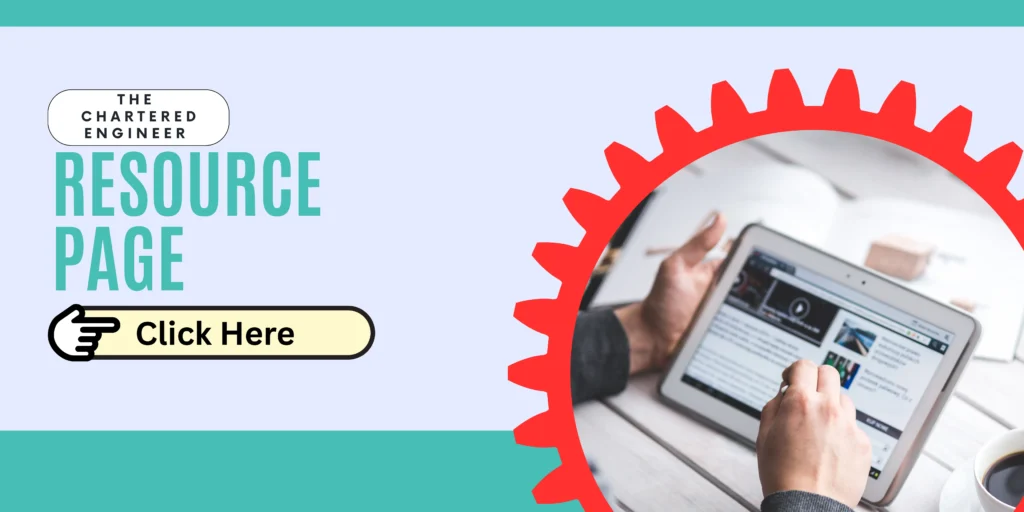Interview: Jake Maxey – MEP engineer and Impactful Engineer Podcast co-host
Electricity can transform people’s lives, not just economically but also socially. – Piyush Goyal

Welcome to another interview with an engineer that you can find on LinkedIn that posts regularly, Jake Maxey – MEP engineer and co-host of The Impactful engineer podcast.
Jake kindly agreed to answer my 10 questions which you’ll find below, take your time to read through all these insights and advise since Jake really took his time to put in as must as he could, afterwards check him out on LinkedIn https://www.linkedin.com/in/jake-maxey-45597287/
Interview with MEP engineer and Podcast Co-host
1. Can you briefly describe your career path and what led you to choose your specific field of engineering?
I grew up in the middle of nowhere and attended fairly small schools up until High School. I had always been good academically, and one of my best friends at the time chose to study electrical engineering. My family had been telling me that college was a good idea. So I decided college + engineering was my path.
After graduation I eventually took a job at a controls and MEP Engineering firm. No idea what it was.
Simple as that. Literally.
2. What key skills do you believe are essential for success in your engineering discipline, and how did you develop these skills?
To sum it up I would say a never ending curiosity and ruthless determination to execute.
I built the skill of ruthless determination throughout my childhood. Very much a core value of mine as I saw it all around me growing up. If I wanted something, it wasn’t about asking, it was about doing what it took to get it. For example, I really wanted a computer when I turned 13. With 5 sibling boys, my parents getting me a computer was not in the cards for me. So I worked a summer at my grandpas print shop for 8 bucks an hour and got myself a nice computer.
Having a never ending curiosity was harder for me to develop, and I am still getting there. I was so independent as a young adult that I sometimes would go through life without noticing much at all, just what needed to be done that was in front of me. I found out I was missing a whole lot of life by doing that, so I needed to change.
Once you practice being curious about others, what challenges they face, what successes they’ve had, why things are done a certain way, etc. – you start to learn and absorb information that you can then apply to your own life and career. There is so much to learn.
Then, you get back to executing on what you’ve learned and moving forward. Curiosity and learning followed by a ruthless determination to execute has worked very well for me so far.
3. What are some common challenges you face in your industry, and how do you approach solving them?
One common challenge for MEP consulting engineers is the multiple competing deadlines relying on multiple separate parties (outside the company and within) that create long working hours and mistakes in execution.
Now, unless there really is just too much work (and that does happen rarely), this isn’t a workload problem. The solution is the proper prioritization of work, and the empowerment of the team to get it done. You can be the best manager on the planet and the people actually doing the work will flop if you don’t take the time to properly prioritize work and create ownership within the team.
4. Can you share an example of a complex project you managed or contributed to, and what were the critical factors in its success?
I wouldn’t say I have managed or contributed to a project that was anything overly complex. In construction, a project size, density of utilities, unknown conditions, etc. can increase complexity.
But the key contribution I can make to a complex project is to turn that perceived complexity into something very simple. Then execute the simple solution. Getting caught in the weeds and not seeing the forest for the trees can derail a project.
5. How do you stay current with the latest developments and technologies in your field?
Get curious! Talk to others, bring in vendors, attend webinars, read articles, etc. Following “the latest” developments has never been a big focus of mine. Knowing how to use what is available right now in the market to solve the owner’s problems in an economical and efficient manner that is expandable – is.
6. Did you have a mentor early in your career? How did their guidance impact your professional development?
Yes, I was trained by multiple 20+ year veterans of electrical design and engineering from a small engineering firm in CA. In a small firm, you learn to handle anything and everything about the business. My direct supervisor invested a lot of effort into training me and that has had a huge impact on my career as it has allowed me to gain a big picture perspective of the work and has increased my ability to lead and mentor others.
7. What practical experiences or internships were most beneficial to you during your studies or early career?
I had none related to the field during my studies. I actually knew very little about industry and what I was actually going to do. Remember my lack of curiosity from before…
My connections got me a job. My ruthless determination kept the job. And thankfully I was able to pick up things pretty quick.
Some practical experiences early on in my career that were most beneficial was tying myself to the hip of my direct supervisor. Much like a cadet at a firehouse. I followed closely and learned everything I could.
8. How important are soft skills such as communication, teamwork, and leadership in your role, and how do you cultivate them?
Very important if you are looking for a long lasting work culture and sustained company growth year in and year out.
To cultivate these it takes intentional time and effort. Both for yourself (probably most importantly yourself) and for others. Leadership is a teachable skill, not an inherent trait. Take the time and effort to learn it and teach it to others. Execute.
9. What advice would you give to young engineers or engineering students who are just starting their careers?
Simply stack skills and work on your personal development.
You make opportunities work for you. Not the other way around. You can either create the narrative that you landed in the wrong place, are being given the wrong work, have bad coworkers or a bad boss, aren’t given enough responsibility, don’t know enough to contribute, or many other useless thoughts.
Or,
You can get curious and learn from those around you, take the assignments given and learn to do them better than anybody else, ask for the right work, get to know your co-workers on a deep level, take responsibility for what you can control, and learn every day with intent and energy.
Stack skills wherever you are at the time, and you will lead yourself to your ideal job/career. You can always get another job or even switch careers in the future, so don’t worry about the one you have so early on in your career.
You can always take your skills with you, and they will be what serves you going forward.
10. What emerging trends or technologies do you think will have the biggest impact on the engineering field in the next five to ten years?
Time for me to get curious about this perhaps.
I believe that any technology that allows buildings to be designed and constructed to meet established economic, energy efficiency, and sustainability goals and that allows humans to be employed and work safely will have a huge impact.
In engineering as a whole, I could list all the hot topics of this time, but who knows what the impact will be. Time will tell.
It’s very hard to know which technologies will prevail. There are so many variables. The “best” technology that solves the “biggest” perceived problem could go unrealized.
Bonus question:
Are there any courses/books/videos/websites that you would recommend young engineers & students to look into when starting in your field?
I recommend the ones you will actually take/read/watch, and learn from. Lean into your curiosities. You are more likely to stick with it.
Bonus Bonus Content:
If you’ve gotten this far in the responses, you might find the following valuable. At least, from an engineer (and human) that has some experience, this is my biggest takeaway yet. I’d like to share that with you:
Your technical skills are important. For the first 3-5 years, dive really deep into those. Learn everything you can. Practice often. Take on challenging technical roles. Work the job like you are going to be a subject matter expert in all MEP engineering disciplines.
All the while you spend time outside of work learning the soft skills and doing as much personal development as works for you. This will come in handy to learn in parallel with your technical skills.
Don’t worry so much about money (I mean, be paid fairly and make enough to live, don’t get taken advantage of). But, at the same time, prioritize stacking skills and becoming an expert over maximizing your pay at every turn. If you are in a job that has tons of growth opportunities technically and the culture to keep you motivated and happy, stay there and pull everything you can.
Even if you hear your friends are taking jobs with higher pay and they encourage you to move on from your job so you can get that $10-20k a year pay bump. In the grand scheme of things, that extra pay is a distraction. Only take that pay if you genuinely believe that your opportunity for growth will increase as a result of the move.
Eventually, if you deploy some aggressive patience, the money will come and so will the title and opportunity to manage and lead at a high level within the organization. If you put the money and title as the goal early on, you will miss the actual skills you need to succeed when you get there. Just because you were promoted doesn’t mean you’ll be great. People are often promoted out of their competency too early on and is actually a detriment to their career.
If money is the primary goal and motivator, you’ll find yourself in a high position with a fancy title and none of the skills to be good at it. Besides, if you want to make a ton of money (like a lot of money, not just to live and retire on), then you need to acquire skills at a deep level and then start a business anyway. You aren’t making legacy wealth as a career engineer. Your legacy will be your contributions to the community and your peers through your technical expertise and your leadership.
I huge thank you to Jake, that really is a massive amount of advice and insights that I’m sure many young engineers and students will make use of, before I end this piece I do recommend Jake and Steven’s Podcast “The Impactful Engineer” found on any platform (here’s a Link). Go find Jake on LinkedIn and connect with him, he’s extremely friendly and a good laugh when you get into engineering nerdy stuff!



What are your thoughts? Have I covered everything or is there more you know and would like to share?
I’m always learning and improving this site and my blogs, so please feel free to get in touch with me via LinkedIn or this site to discuss any topics I have covered.
If you’re having trouble finding ways to progress check out these sites filled with free learning tools:

